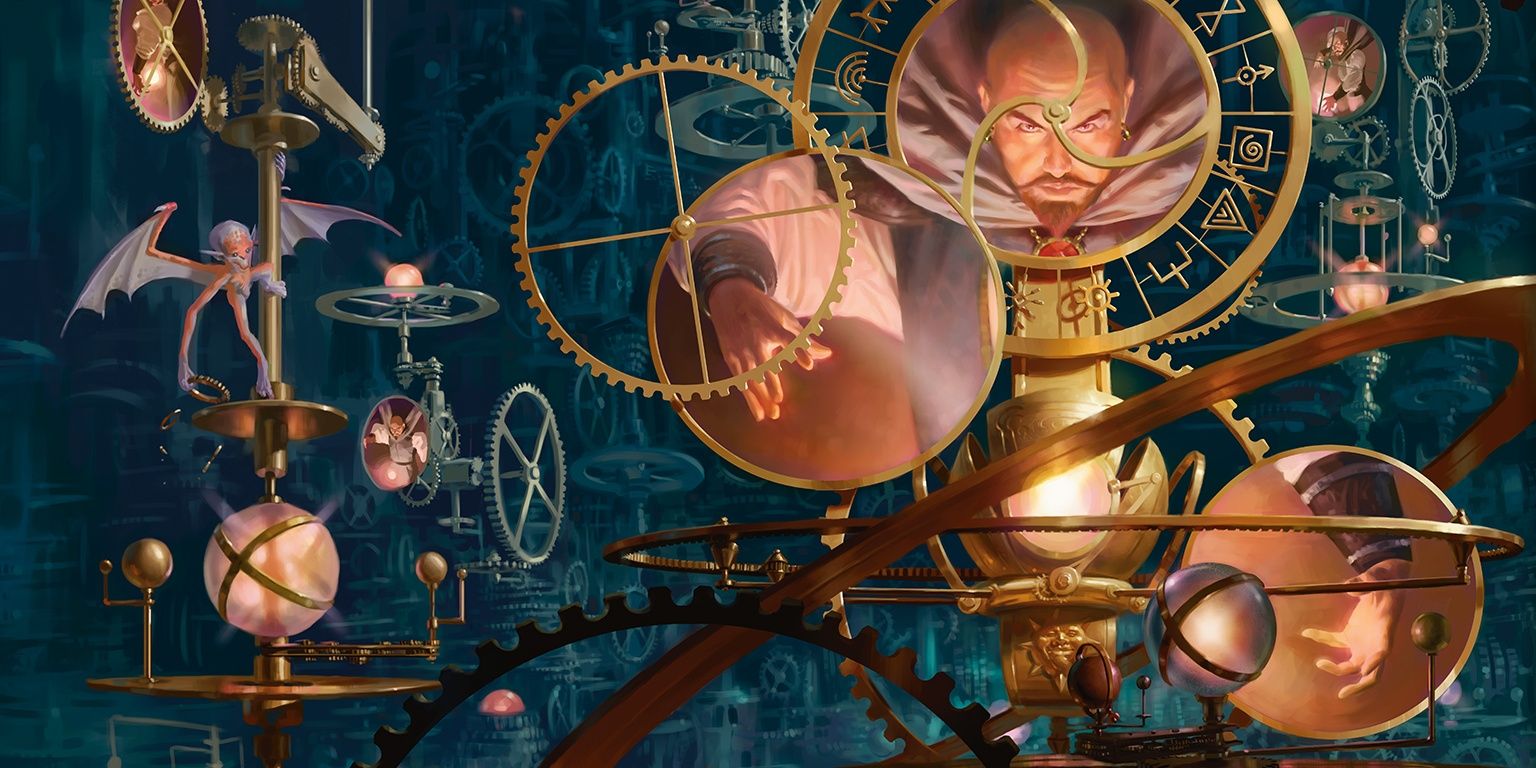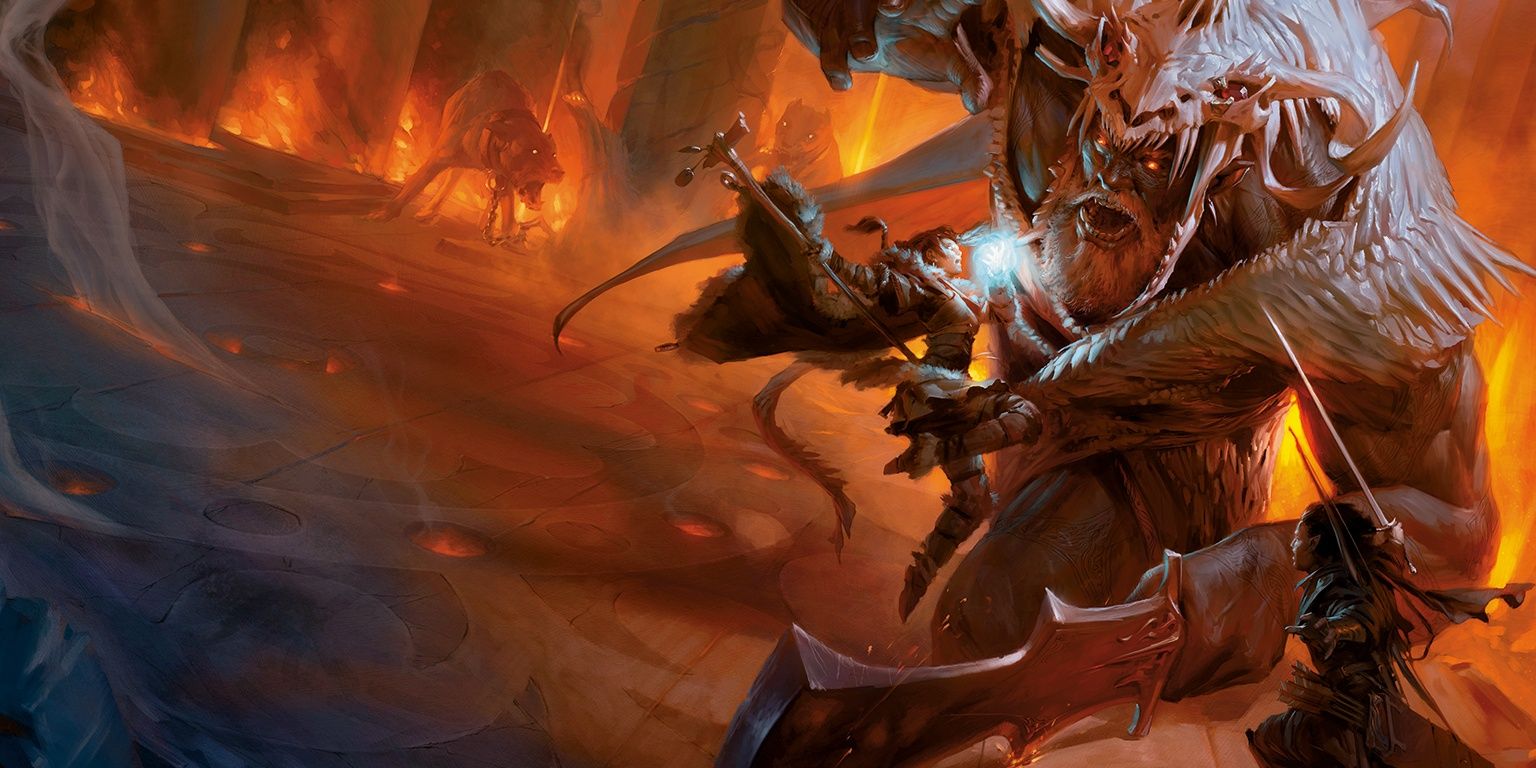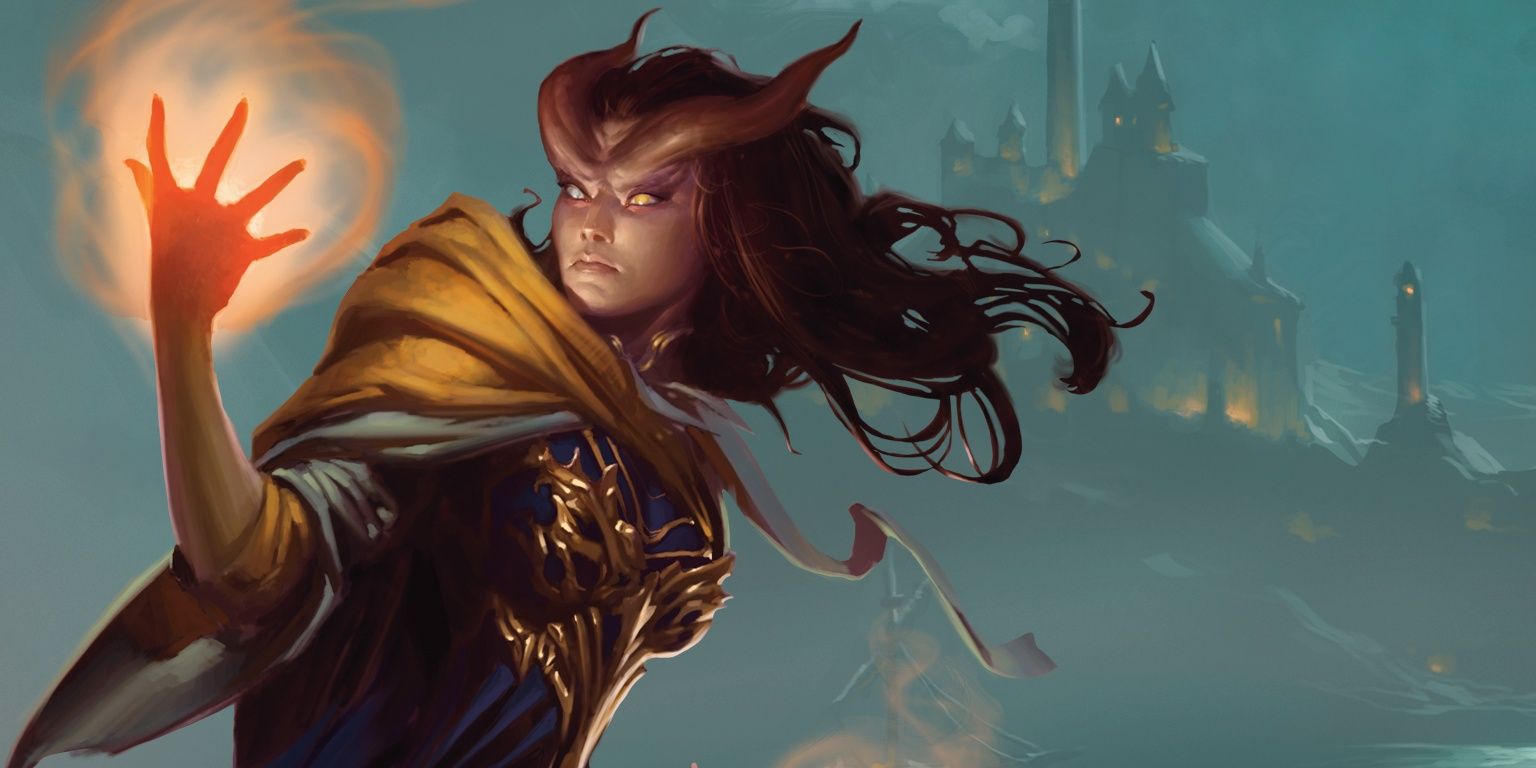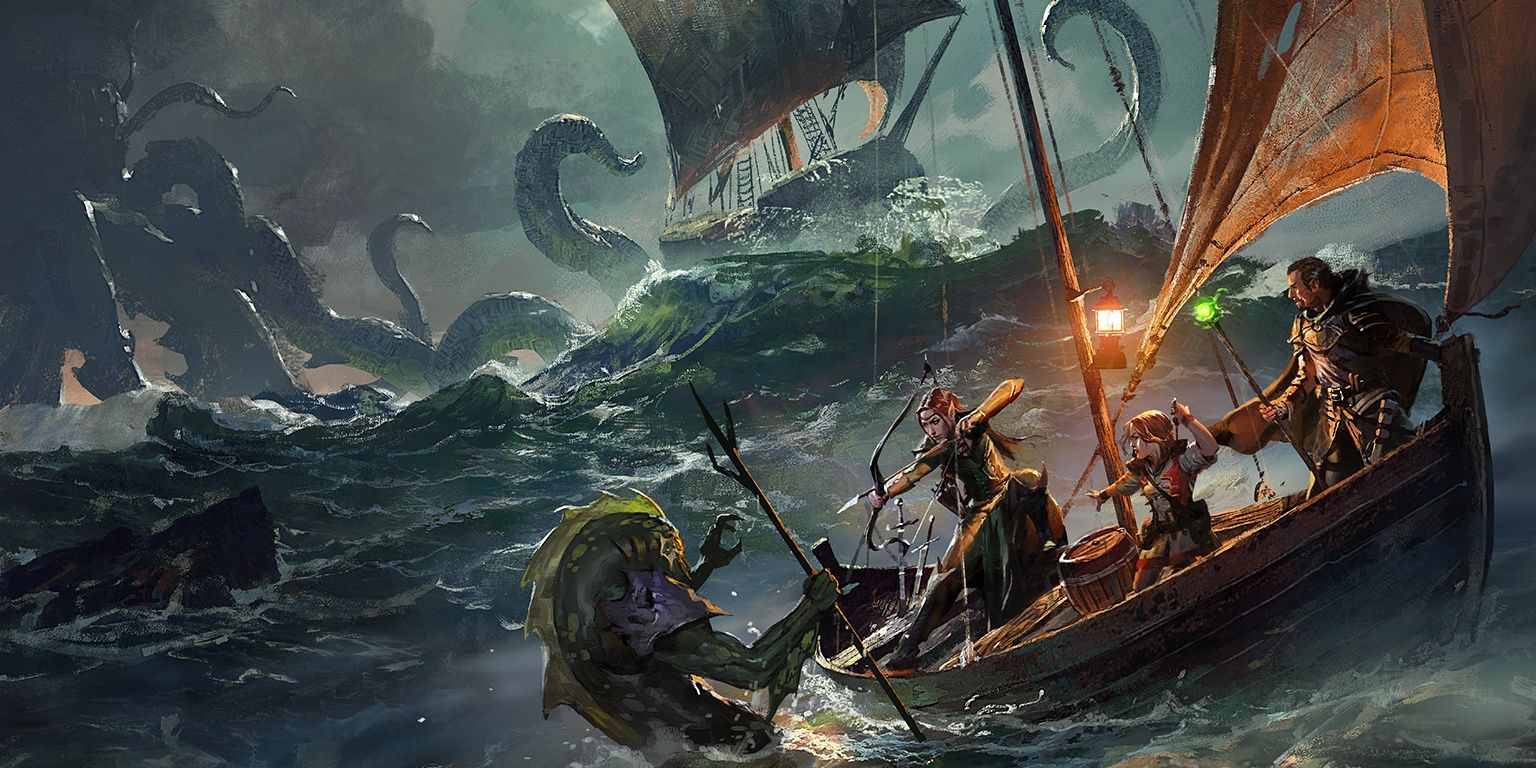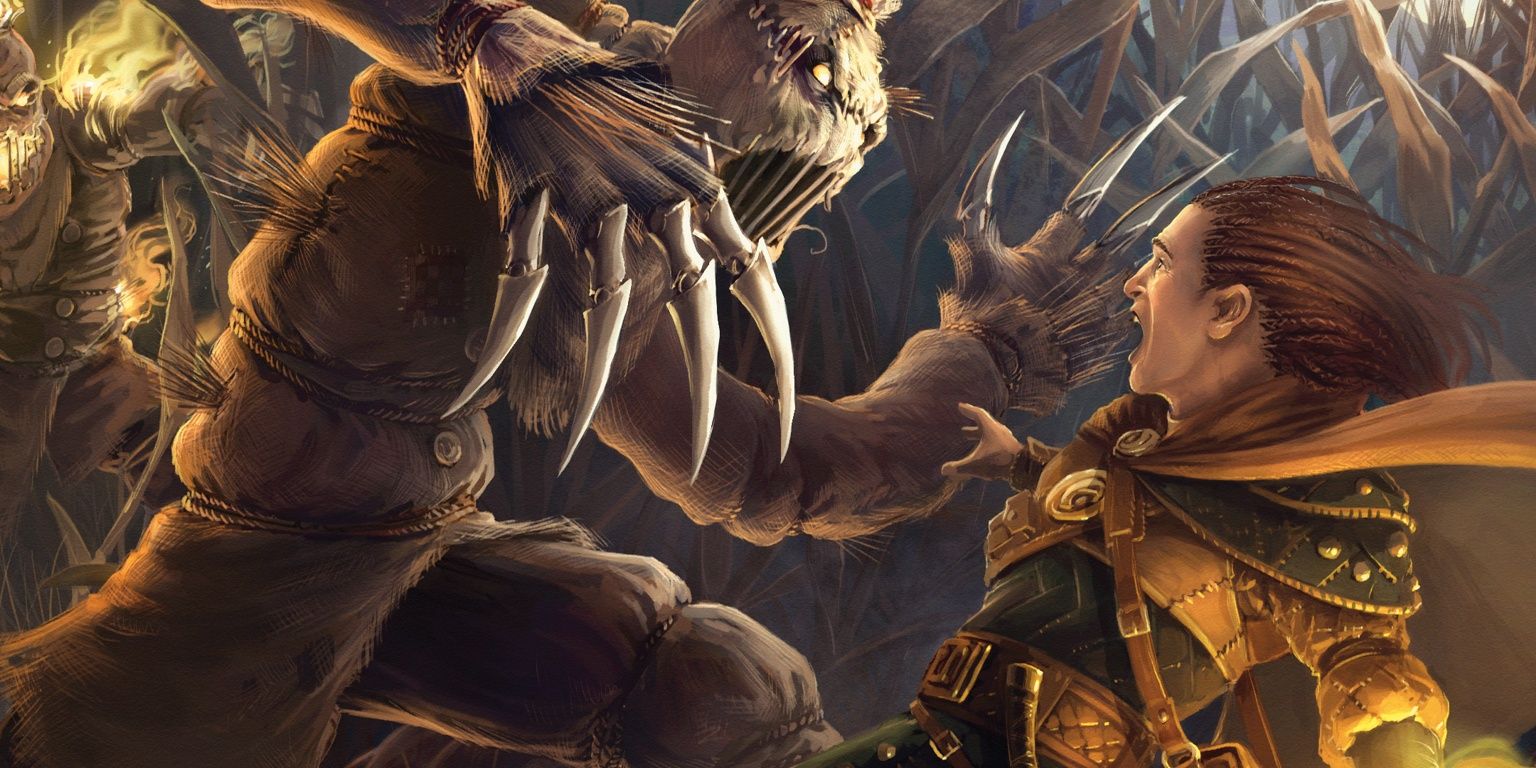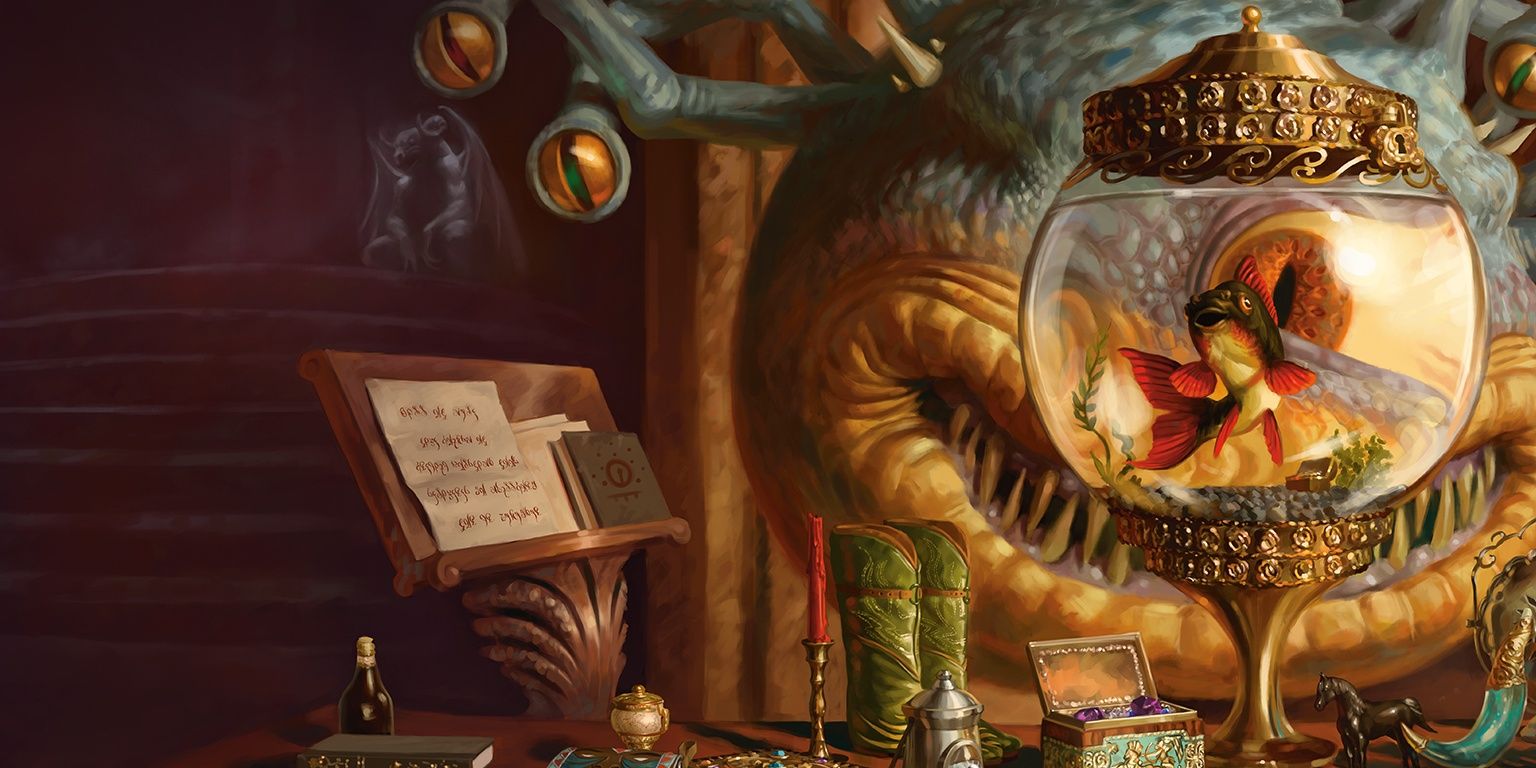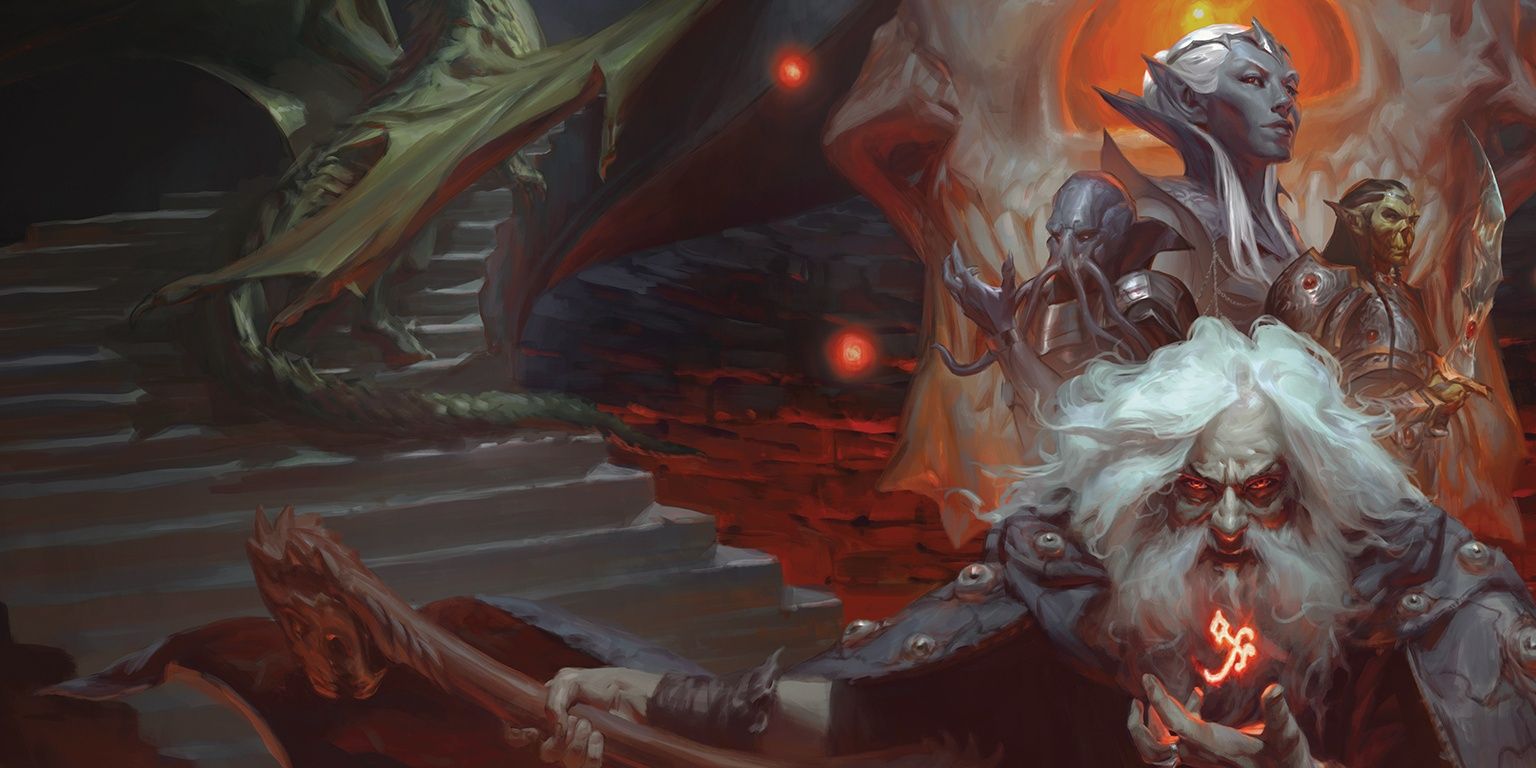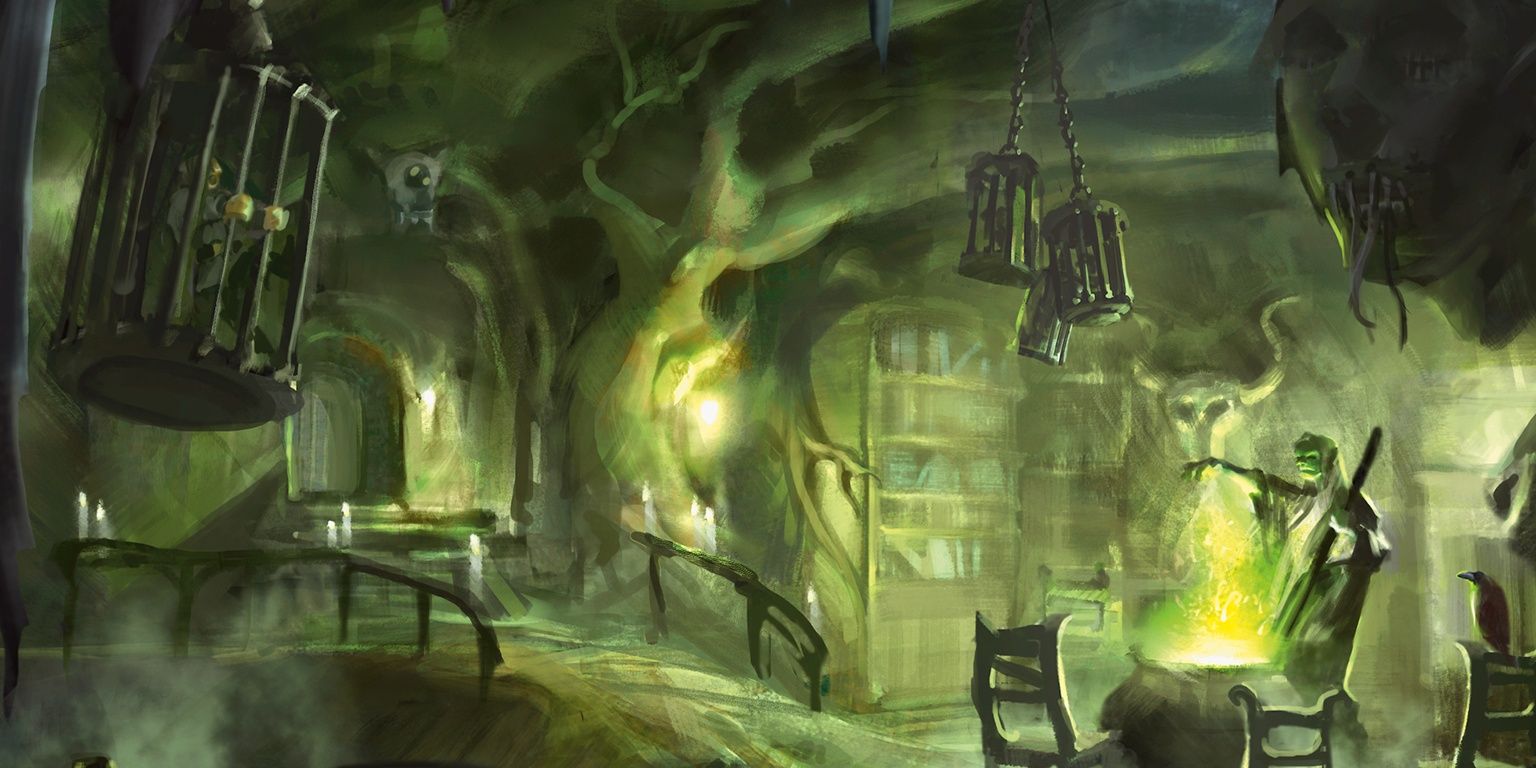Bards, the vocal cords of any adventuring party. When it comes to talking (or singing) your way out of a situation, your resident bard is the one to call. With a vocabulary befitting a scholar, a bard’s arsenal of persuasion is practically endless. Their spell slots, however, are not.
When choosing a bard’s abilities, it can be easy to get lost in the sheer amount of text available to them. Since each and every slot is so valuable, here are the 5 skills every bard should know (& 5 that are useless).
10 Useful: Vicious Mockery
via: Wizards of the Coast
Bards are masters of the spoken word, quick and clever with every word that comes out of their mouths. As a cantrip you can (and should) take at 1st level, it is the bedrock of any Bard's damaging toolkit. Cantrips, spells requiring no use of a spell slot, should always be used as a first measure before deciding to spend a slot. So whether you're insulting a goblin's appearance or attempting to more harshly persuade a shopkeep into lowering prices, consider using Vicious Mockery before using more valuable spells like Charm Person or Polymorph.
9 Useless: True Strike
via: Wizards of the Coast
Despite its promising name, True Strike does not actually strike. Instead, it costs an action and makes your next attack against a target have an advantage. While spending an entire turn to increase your chances of landing an attack next round isn’t the worst idea. In Dungeons and Dragons, there are plenty more useful options that you could use on your precious turn like healing or buffing a party member. Attacking is typically always a good idea, but in the case of the bard, your primary role is the utility of the party.
8 Useful: Mage Hand
via: Wizards of the Coast
Like Vicious Mockery this is also a cantrip. While not exclusive to Bard, that doesn't lessen its value at all. In the most basic terms, mage hand is essentially an extension of your own hand but not as strong. D&D Beyond describes the spell, detailing that this incorporeal hand can push buttons, lift light objects, turn keys, and even tap on the shoulder of some unsuspecting low Intelligence creature. Locked in a cage and the key is strapped to a sleeping goblin guard twenty feet away? Use Mage Hand. Not quite tall enough to reach that book resting on the highest shelf? Use Mage Hand. Need to tickle a party member awake but don't want to get up to do it? Use Mage Hand!
7 Useless: Tongues
via: Wizards of the Coast
An argument can be made for tongues, being able to instantly communicate with another being can be useful. Though when you have an ability that can be replaced by the spoken languages of the party, it becomes less attractive.
Each spell slot is priceless and even the most meager of spells and be the difference between living and dying. Don’t underestimate the power of low-level spells, they are what you have the most of and often all you have to pull from at the early stages of an adventure.
6 Useful: Charm Person
via: Wizards of the Coast
You know those RPG characters that spec all into charisma so they can talk their way through a game? That is what Charm Person is, without having to do any of the talking. It is also the most basic of charms that you will have access to from early on.
Not every fight has to end with someone getting hurt. Instead, you can end it with the flick of a wrist and suddenly those enemies are friends. That is until the charm wears off and you are forced to hurt them again.
5 Useless: Magic Mouth
via: Wizards of the Coast
On paper, this spell sounds like the most impressive and clever way to transmit a message to another player or NPC. In practice, though, so many different variables would have to line up in your favor for this to actually be successful. A spell-like Sending (from D&D Beyond), while it does take a 3rd level slot, can send a message of similar length, instantly, without a trigger, and to a creature that doesn’t even need to exist on the same plane of reality as you.
4 Useful: True Polymorph
via: Wizards of the Coast
The standard Polymorph learnable at level 4 is a great spell on its own, but this upgraded version takes the spot on this list. True Polymorph allows you to turn any creature or nonmagical object into another creature or object. If you hold concentration on this spell for an hour, the effect becomes permanent. The applications for this, like most bard spells, are practically infinite. You can use it to save a low HP party member, turn an enemy into a mouse, or turn a party member into a mount to travel with.
3 Useless: Illusory Script
via: Wizards of the Coast
Like Magic Mouth, this spell seems like it would allow for some inventive communication, but it is really another borderline useless ability to have. While less complicated in its usefulness than Magic Mouth, it would still take considerable planning and luck for this to have its desired effect. It also takes a 1st level spell slot when there are several other 1st level spells like Bane and Healing Word that would be a better use of your slots.
2 Useful: Wish
via: Wizards of the Coast
Wish is the Infinity Gauntlet of spells (though you won’t be able to acquire it until 17th level). While the official description of the spell provides a few examples of what the spell is capable of, the possible effects of the spell are innumerable. Think of it as anything you could wish upon a star for Wish can do to. The spell does come with its cost, however. The power of the spell is so incredible that you will be weakened afterward. Casting any sort of spell will damage you and your strength score will be reduced for a period of time. In addition to this, there is a 1/3 chance that you will be permanently unable to cast the spell again, so save this for only the direst circumstances. Also keep in mind that while many things are possible, all of the resulting effects are at the discretion of your DM.
1 Useless: Skywrite
via: Wizards of the Coast
From D&D Beyond, Skywrite is a 2nd level spell that allows you to write up to ten words using the clouds above. This spell could have a number of uses in both storytelling and roleplaying situations, but those situations are few and far between. It provides no way of stealthily communicating a message to party members, nor does it offer any sort of in-combat benefit. It is also hard to justify preparing the spell when other, more useful spells like Hold Person and Invisibility take up the same level spell slot and offer both in-roleplay and in-combat possibilities.


